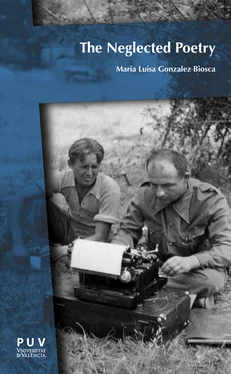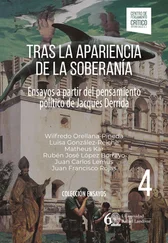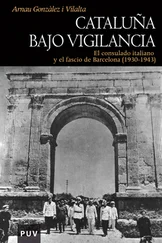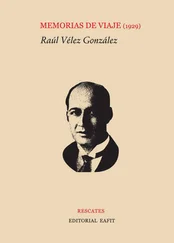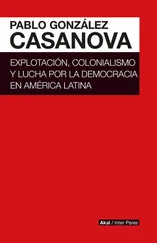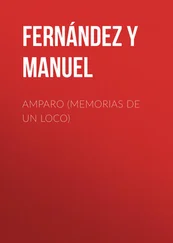Another testimony is offered by the North American reporter John Whitaker, who transcribes an interview between the American ambassador in Madrid, Claude G. Bowers, and the Count of Romanones:
The rebellion? We planned it the day we lost the election, he said. Having laid their plans, the reactionaries decided, in the first place, to get in touch with the German and Italian governments and, in the second place, to create incidents and spread terrorism which was answered in kind, not by the Popular Front government, but by the more radical elements outside the government. The right murdered a popular leftist leader,[ 3] and the left retorted in swift reprisal. They struck down Calvo Sotelo, the ablest politician among the rightist plotters. This murder was used to set off the military coup d’etat. There was a military rising in Morocco on July 16 and it became nationwide on July 18, 1936.
The press was muzzled in the participating countries of the policy of appeasement; the majority of the articles were about the bombings of the civil population and the rebels’ crimes were denounced, slanted or directly rejected. Luis Delaprée, from Paris Soire, who was now fed up with the censorship that his work underwent, decided to return to Paris to personally complain to his director. Unfortunately, he never arrived. According to Martin Minchom (2009: 64-65), the same day the newspaper announced his death, 12 of December 1936, Pierre Lazarev, the editor in chief, paid a personal tribute to his colleague on the front page of the newspaper:
At the Spanish war fronts and on both sides of the barricades, you have been not only the most possibly objective, but also, the least indifferent witness, the one who rebelled the most against the atrocious fighting. At the beginning of 1937 Lazarus speaks about the very complicated conditions that the correspondents have to work in and their disillusion because their reports do not fit in the newspaper (the translation is ours).
During the Spanish Civil War, the Condor Legion, the Aviazione Legionaria and their submarines, not only sank Spanish military and civilian ships, but also, targeted any ship that was within range. On the contrary, the submarines of the Regia Marina were careful not to be identified. Cargo ships, sailing under other nations’ flags, with non-intervention control committee certificates were not respected and many were attacked and sunk. Most of this aggressions happened while entering the harbour or while docking. Some cargo ships were attacked at the same time as the bombers blitzed large cities, such as Barcelona, Castellón, Valencia, Alicante, Gandia and so on. As an illustration, the sinking of the cargo ship Woodford on September 1st, 1937, off the coast of The Columbretes Islands, east of the coast of Castellón, pushed Anthony Eden, Minister of Foreign Affairs of the United Kingdom, to propose an agreement of marine vigilance in the Mediterranean by which some protected ways were created, so that ships were escorted in case of threats by pirates:
The agreement of Nyon caused the British and French to locate part of their floats near the Spanish coasts, but also on the high sea with the mission of enforcing the blockage, but with instructions to sink pirate submarines, actually Italians, who acted against their ships (Martínez Reverte, 2009: 215).
Great Britain, seriously worried by the frequency of the attacks on its ships, the majority being cargo ships coming from the colonies, made reclamations to the Italian Government. In those claims, Chamberlain explained what was happening with the cargo and told the Italians that, besides the material losses, there had also been many human losses. Finally, France and England convened the European powers to an agreement in Nyon to put an end to the pirate attacks. A few days later, on the seventeenth of September 1937, Chamberlain read a speech in Geneva about the agreements which were reached in Nyon. Anthony Eden referred to these circumstances in the following terms:
You may perhaps ask why a conference was necessary. The reason is that we wished to mark clearly the horror which surely must be felt by all civilized people at the barbarous methods employed in these submarine attacks. Moreover, the size of the Mediterranean and the consequent extent of the problem made it certain that unorganized efforts would result in overlapping and confusion and might, in consequence, fail of their purpose (1939: 216).
Following this international situation, on 20th February, 1938, Mr Eden sent his resignation to the office of the Foreign Secretary to the Prime Minister at N°.10 Downing Street. A few months later, June 1938, at Hasley Manor, Mr Eden referred to the foreign affairs and the international situation (Eden, 1939: 259). In the chapter “A WARNING OF DANGERS AHEAD,” from his book FOREIGN AFFAIRS, Anthony Eden states:
We have heard much in the last few days of the most recent developments in the Spanish War, and they have gravely troubled the conscience of the nation. The Government are deeply concerned, and rightly so, at the growth of bombing of civilians, the loss of life, the loss even of British lives and ships that has taken place. We must all share their concern, for it is indeed impossible to close our eyes to such events or to ignore their effect upon international relations and upon the feelings of the British people. (1939: 285).
It is surprising that Great Britain, France, and other affected countries did not protest against, nor claim damages from, the nations responsible for these attacks, mainly Italy and Germany, after the Spanish Civil War and even the Second World War had ended. When some of those ships were refloated and repaired during the dictator Francisco Franco’s rule and renamed with Spanish names, there was no claim for them. Then, those ships sailed under the flag of a country that was not recognized as a democracy by the United Nations Organization.
2.4. The International Brigades Stand Up for the Spanish Republic: The Answer to a Farce
The Spanish Civil War began with un unjustified cruelty by the rebel army, sustained by the close collaboration of the European totalitarian regimes represented by Hitler in Germany, Mussolini in Italy and Salazar in Portugal.
When war broke out, the commander Vicente Rojo remained loyal to the Republic; in October 1936 he was promoted to lieutenant colonel and was named Head of the Junta de Defensa in Madrid. In March 1937 he was promoted to colonel, and in May, after the formation of the new government of Dr Juan Negrín, Vicente Rojo was named Head of the General Command Staff of the Armed Forces and Head of the General Staff of the Ground Forces. In September he was ascended to general. According to Martínez Reverte (2009: 24-25), General Vicente Rojo described the first moments of the rebellion like this:
From its conception and its beginning, the coup d’état is a movement with a bloody character with enormous violence, from the beginning that violence is directed against the rebels’ own colleagues, the death penalty is immediately applied to those who show loyalty to the Republican oath and to those who hesitated to support the coup d’état, without having any simulation of trail. The first victims of the civil war are military men, those loyal to the Government, with whom the rebels had shared dining room and office until the moment of the coup. (the translation is ours).
In the opinion of A. Rodríguez Celada, González de la Aleja and Pastor Garcia (2006: 9-10) the genealogy of the foreign answer regarding the civil war begins with the proposal of the agreement of non-intervention, and with the creation of the Committee of Non-Intervention in August 1936. Between the 2 ndand 4 thof this month, Great Britain and France agreed to keep themselves outside the conflict. On the 8th of August, Italy and Germany joined the treaty and France closed its border. On the 19 thof August, Anthony Eden, the British Minister of the Foreign Office, announced the blockage of weapon supplies to Spain. The USSR joined the agreement, but it had already begun to send pilots in October.
Читать дальше
